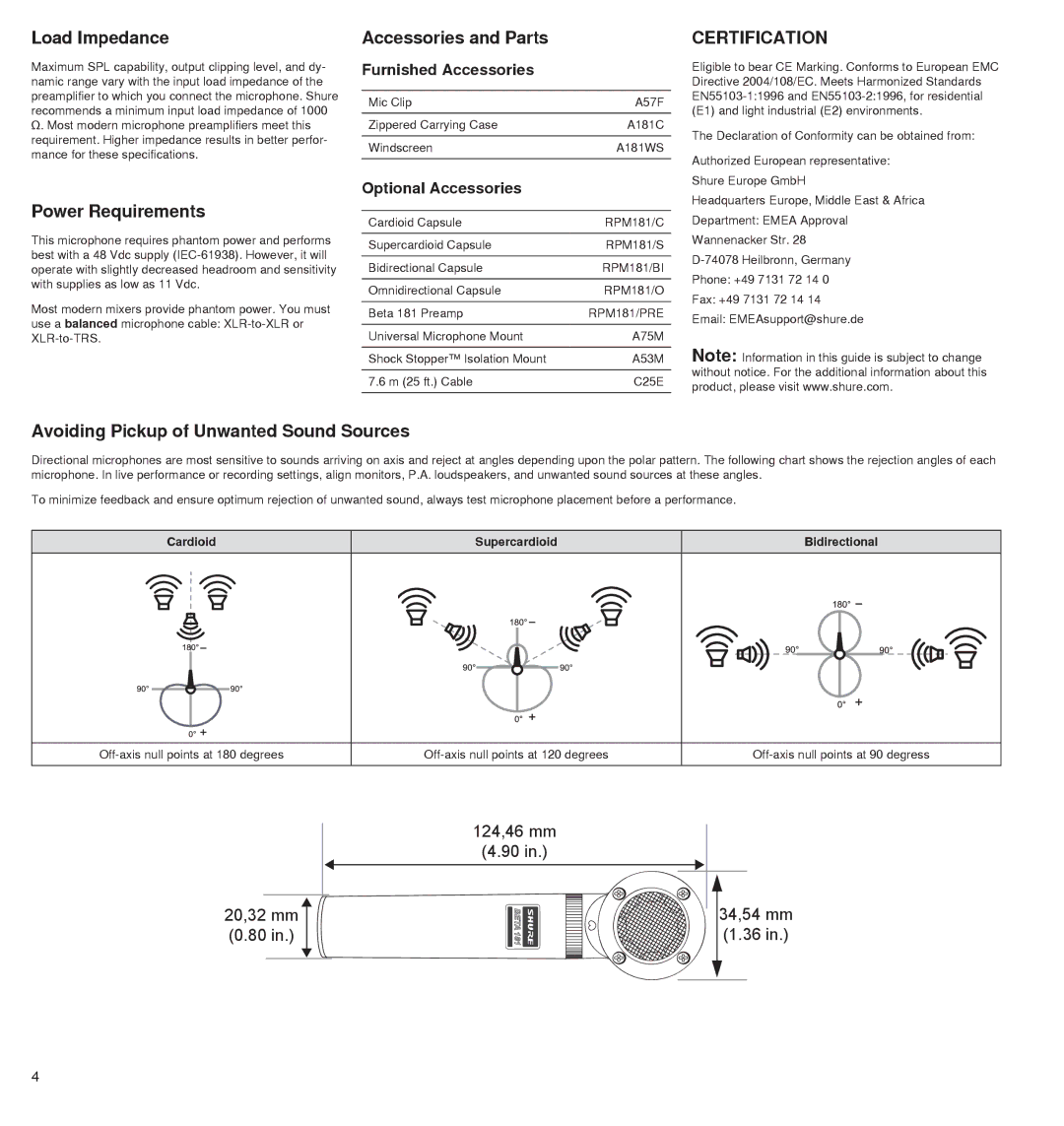
Load Impedance
Maximum SPL capability, output clipping level, and dy- namic range vary with the input load impedance of the preamplifier to which you connect the microphone. Shure recommends a minimum input load impedance of 1000
Ω.Most modern microphone preamplifiers meet this
requirement. Higher impedance results in better perfor- mance for these specifications.
Power Requirements
This microphone requires phantom power and performs best with a 48 Vdc supply
Most modern mixers provide phantom power. You must use a balanced microphone cable:
Accessories and Parts
Furnished Accessories
Mic Clip | A57F |
Zippered Carrying Case | A181C |
Windscreen | A181WS |
Optional Accessories
Cardioid Capsule | RPM181/C |
Supercardioid Capsule | RPM181/S |
Bidirectional Capsule | RPM181/BI |
Omnidirectional Capsule | RPM181/O |
Beta 181 Preamp | RPM181/PRE |
Universal Microphone Mount | A75M |
Shock Stopper™ Isolation Mount | A53M |
7.6 m (25 ft.) Cable | C25E |
CERTIFICATION
Eligible to bear CE Marking. Conforms to European EMC Directive 2004/108/EC. Meets Harmonized Standards
The Declaration of Conformity can be obtained from:
Authorized European representative: Shure Europe GmbH
Headquarters Europe, Middle East & Africa Department: EMEA Approval Wannenacker Str. 28
Note: Information in this guide is subject to change without notice. For the additional information about this product, please visit www.shure.com.
Avoiding Pickup of Unwanted Sound Sources
Directional microphones are most sensitive to sounds arriving on axis and reject at angles depending upon the polar pattern. The following chart shows the rejection angles of each microphone. In live performance or recording settings, align monitors, P.A. loudspeakers, and unwanted sound sources at these angles.
To minimize feedback and ensure optimum rejection of unwanted sound, always test microphone placement before a performance.
Cardioid
Supercardioid
Bidirectional
20,32 mm
(0.80 in.)
124,46 mm
(4.90 in.)
34,54 mm
(1.36 in.)
4
